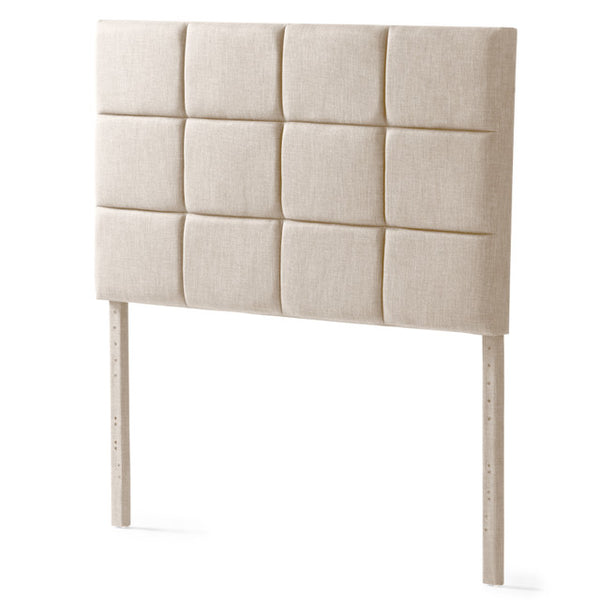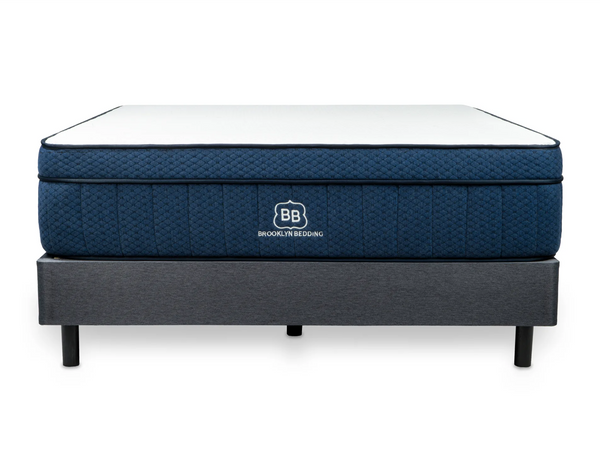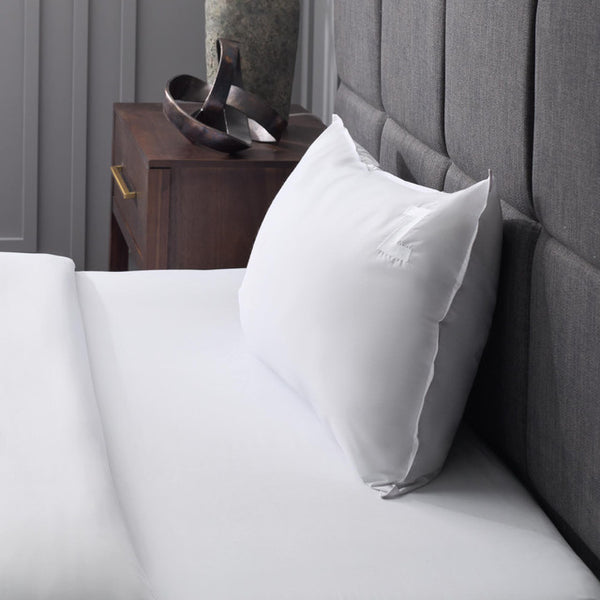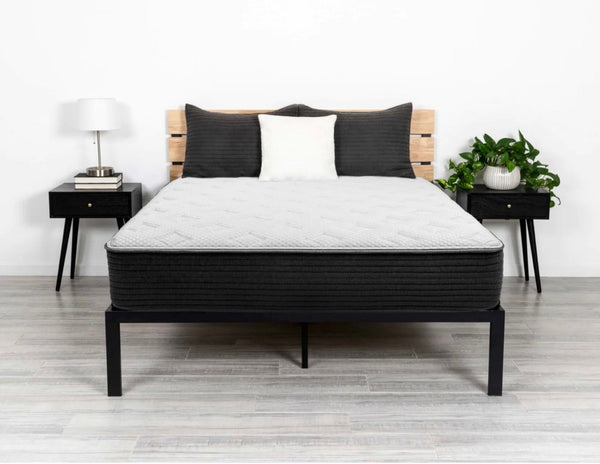
Frequently Asked Questions
1. Why is establishing a sleep routine important?
2. What are common sleep disruptors to look out for?
3. How can I create a calming pre-sleep ritual?
4. What dietary considerations can improve my sleep quality?
5. How can I effectively incorporate mindfulness and relaxation techniques into my bedtime routine?
In a fast-paced world where sleep often takes a backseat, establishing a personalized sleep routine can transform your nights and enhance your overall well-being. At The Sleep Loft, we understand the importance of quality sleep, and we want to guide you on how to create a sleep routine that works best for you. In this blog post, we’ll explore tips, tricks, and suggestions to help you fall asleep faster and wake up feeling refreshed.
Why is a Sleep Routine Important?
Before diving into the how-tos, let’s discuss why a sleep routine is crucial. A consistent sleep schedule has multiple benefits, including:
- Improved Sleep Quality: Keeping regular sleep hours helps your body establish a natural sleep-wake cycle.
- Enhanced Mood: Adequate rest can lead to better emotional health and reduce irritability.
- Increased Productivity: A good night’s sleep enhances focus and alertness, boosting work performance.
- Better Overall Health: Quality sleep is linked to a healthier immune system and lower risks of chronic illnesses.
Assessing Your Current Sleep Patterns
Before creating a new sleep routine, evaluate your current habits. Take a week or two to track how much sleep you’re getting, when you go to bed, and when you wake up. Consider noting how you feel during the day, including your energy levels and mood. This assessment will give you a clearer picture of what changes you might need to make.
Identify Sleep Disruptors
As part of your assessment, identify factors that disrupt your sleep. Common culprits include:
- Caffeine and Sugar: Consuming these too close to bedtime can wreak havoc on your ability to fall asleep.
- Screen Time: The blue light emitted by phones, tablets, and computers can interfere with melatonin production.
- Environmental Factors: Excessive noise, light, or an uncomfortable sleeping environment can impact your sleep quality.
Crafting Your Personalized Sleep Routine
With a clear understanding of your current sleep patterns and potential disruptors, it’s time to craft a personalized sleep routine. Here are some key elements to consider:
Set a Consistent Sleep Schedule
Pick a bedtime that allows you to get 7-9 hours of sleep, which is the recommended amount for most adults. Aim to go to bed and wake up at the same time every day, even on weekends. This consistency reinforces your body’s internal clock.
Create a Relaxing Pre-Sleep Ritual
Develop a calming pre-sleep routine to signal to your body that it’s time to wind down. Consider incorporating the following activities:
- Reading: Choose a book or listen to an audiobook that engages your mind without overwhelming it.
- Gentle Stretching: Simple yoga or stretching can help ease muscle tension.
- Warm Bath or Shower: A warm bath can elevate your body temperature and, as it cools down afterward, can help induce sleepiness.
- Mindfulness or Meditation: Practicing mindfulness meditation helps reduce anxiety and promotes relaxation, making it easier to drift off to sleep.
Optimize Your Sleep Environment
Your bedroom should be conducive to sleep. Here are some suggestions to optimize your sleep environment:
- Darkness: Use blackout curtains or an eye mask to eliminate light that may disturb your sleep.
- Comfortable Bedding: Invest in quality pillows, mattresses, and bedding that suit your sleeping style for maximum comfort.
- Temperature Control: Aim for a cooler room temperature, typically between 60-67°F (15-19°C), which is ideal for sleep.
- Quiet Space: Consider white noise machines or earplugs if you live in a noisy area to minimize disruptions.
Dietary Considerations for Better Sleep
Your daily diet can significantly impact your sleep quality. Consider the following dietary tips to enhance your chances of restful sleep:
Avoid Heavy Meals Before Bed
Eating large or heavy meals close to bedtime can lead to discomfort and indigestion, making it difficult to fall asleep. Aim to finish eating at least 2-3 hours before you go to bed.
Focus on Sleep-Inducing Foods
Incorporate foods into your diet that promote sleep, such as:
- Almonds: A rich source of magnesium, which is known to promote muscle relaxation.
- Kiwi: Research indicates that this fruit may improve sleep quality due to its antioxidant properties.
- Chamomile Tea: Known for its calming effects, chamomile tea may help induce sleepiness.
- Fatty Fish: Rich in omega-3 fatty acids and vitamin D, fatty fish can improve sleep quality.
Incorporate Mindfulness and Relaxation Techniques
Sometimes, racing thoughts can keep you awake. Incorporating mindfulness and relaxation techniques into your bedtime routine can help quiet your mind:
Deep Breathing Exercises
Before bed, practice deep breathing exercises to calm your nervous system. Try inhaling deeply through your nose, holding for a few seconds, and then exhaling slowly through your mouth.
Progressive Muscle Relaxation
This technique involves tensing and then relaxing each muscle group in your body, starting from your toes and working your way up to your head. It helps release tension and prepares you for sleep.
Limit Stimulants and Distractions
Be mindful of habits that can negatively affect your sleep routine:
Limit Caffeine Intake
Since caffeine is a stimulant, avoid consuming it during the afternoon and evening. Keep track of other sources of caffeine, including chocolate and some medications.
Reduce Screen Time Before Bed
As mentioned earlier, the blue light from screens can interfere with melatonin production. Aim to disconnect from digital devices at least one hour before bedtime. Instead, engage in calming activities that promote relaxation.
Stay Active, but Know When to Wind Down
Regular physical activity can help you fall asleep faster and enjoy deeper sleep. However, timing is key:
Schedule Exercise Early
Try to finish exercising at least a few hours before your bedtime. While morning or afternoon workouts can help regulate your sleep cycle, evening workouts may cause an adrenaline spike that can keep you awake.
Incorporate Relaxing Activities
On days when you exercise in the evening, complement your routine with activities that calm your body and mind afterward, such as yoga or gentle stretching.
Tuning in to Your Body’s Signals
As you begin to implement your personalized sleep routine, keep an eye on how your body responds. It’s essential to pay attention to your natural sleep signals and adjust your routine accordingly.
Listen to Your Body
If you find yourself struggling to stay awake during the day, consider adjusting your sleep schedule to ensure you’re getting enough rest. On the other hand, if you wake up feeling fatigued after a full night of sleep, consider refining your sleep environment or routine.
Be Patient and Flexible
Establishing a new sleep routine takes time. Be patient with yourself, and don’t hesitate to adjust your strategy as needed. Experiment with different activities and practices until you find a routine that truly resonates with you.
Embrace the Journey to Better Sleep
Creating a personalized sleep routine is a journey, not a destination. With a commitment to understanding your body’s needs, optimizing your environment, and incorporating relaxation techniques, you can craft a routine that enhances your sleep quality and overall well-being. At The Sleep Loft, we’re here to support your sleep journey as you embrace the art of restful nights and productive days!









